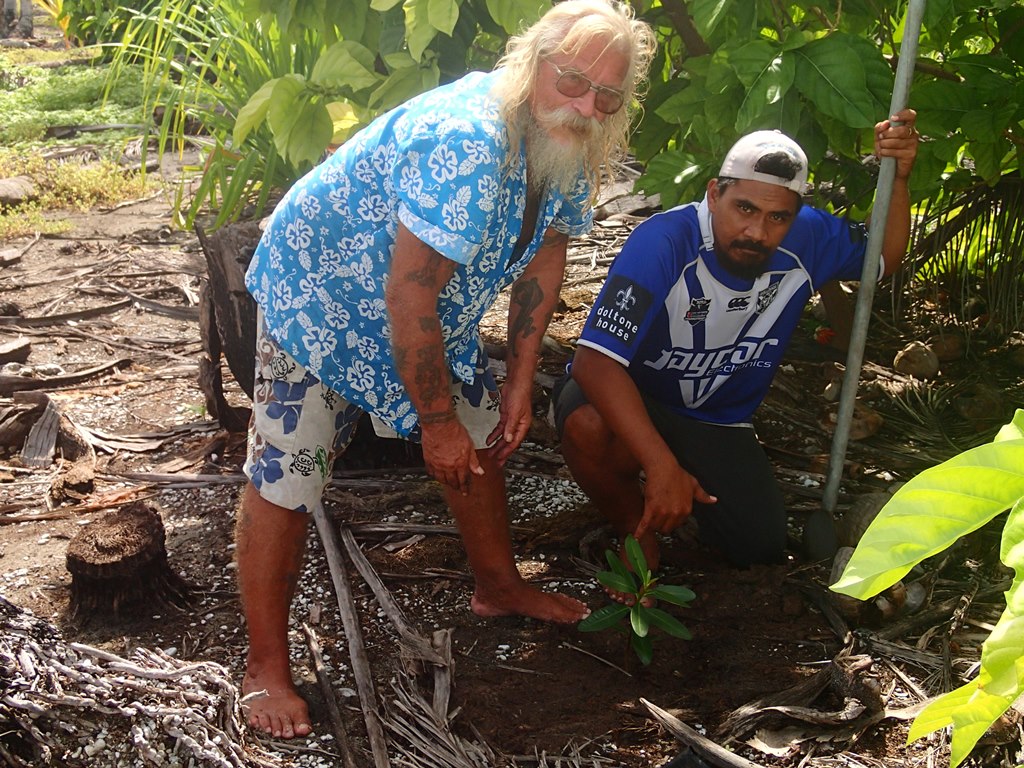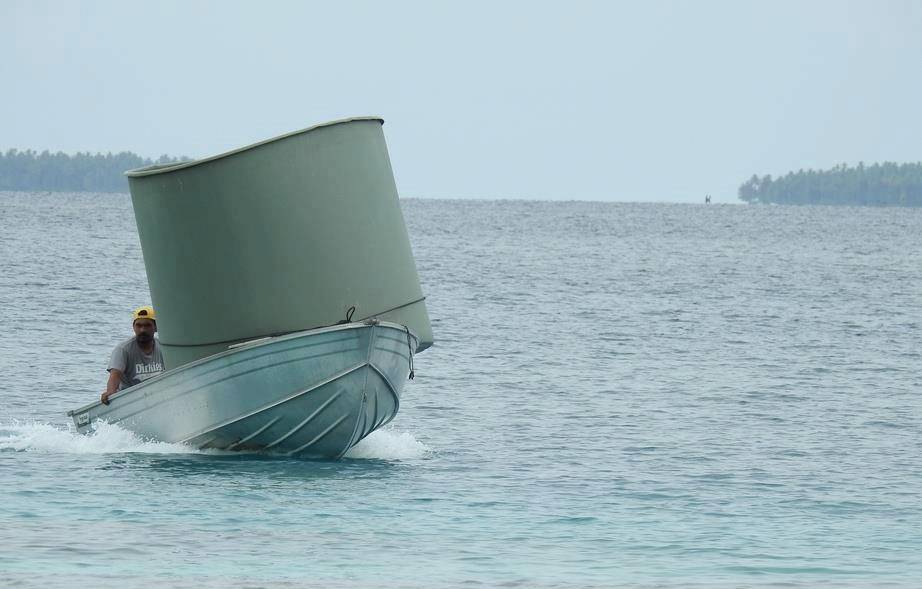Beneficiary Stories
Cook Islands: Protecting coastlines and turtle nesting sites
By Climate Change Cook Islands
With support from the Adaptation Fund, the Cook Islands is strengthening its vulnerable coastlines on the spectacular low lying atoll of Penrhyn to protect the community from the increased intensity and frequency of king tides, tidal surges and natural disasters due to climate change.
Designed by the students of Te Moa a Rongonui School and Dr. Michael White from the Hakono Hararanga Incorporated, the project encourages youth and communities to replant 10,000 native trees over the next two years. This is urgent because Penrhyn Pa Enua is one of the very few turtle nesting sites in the whole of the Cook Islands. The trees protect both the coastline and nesting sites for turtles from natural disasters due to climate change.
The four project sites are located on Motu (Islet), Ava Rima, Tini Manu, Motu Kasi and Tevete. In February 2017, the observatory building was completed, blessed and handed over to the Penrhyn community. The observatory allows students and the community to learn more about turtles and their habitat.
Now in its final phase, the Te Pitaka project will focus on the re-planting of 1 km of native trees (Tamanu, Coconut Trees, Toa, Ngangie) to protect turtle nesting sites and the coastline of the Motu (Islet).
The Strengthening the Resilience of the Cook Islands to Climate Change Programme (SRIC-CC), is implemented by Climate Change Cook Islands, a division within the Office of the Prime Minister and supported by the United Nations Development Programme. With financial support from the Adaptation Fund (AF), the SRIC-CC Programme and communities in the Pa Enua are addressing environmental risks through community-based approaches and community-driven adaptation. The SRIC-CC Programme works with more than 200 individuals on community-based resilience initiatives to enhance water and food security across the 11 Pa Enua (outer islands) of the Cook Islands.

The project aims to protect coastlines in the Cook Islands. Photo: SRIC-CC
Learn More



